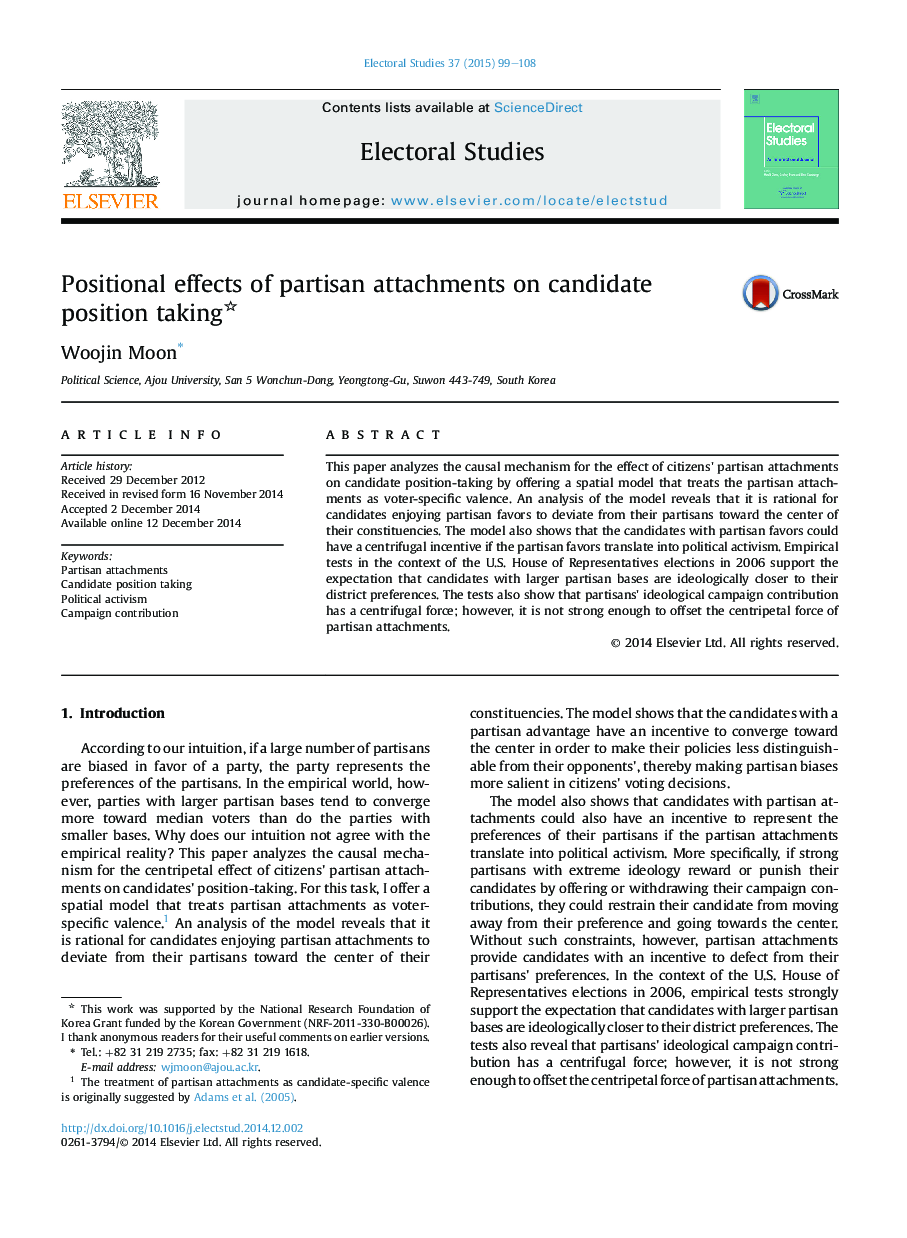| Article ID | Journal | Published Year | Pages | File Type |
|---|---|---|---|---|
| 1051821 | Electoral Studies | 2015 | 10 Pages |
•It is rational for candidates with partisan favors to deviate from their partisans toward the center of their constituencies.•Candidates with partisan favors have a centrifugal incentive if the partisan favors translate into political activism.•Candidates with larger partisan bases are ideologically closer to their district preferences.•Partisan' ideological campaign contribution has a centrifugal force.•But it is not strong enough to offset the centripetal force of partisan attachments.
This paper analyzes the causal mechanism for the effect of citizens' partisan attachments on candidate position-taking by offering a spatial model that treats the partisan attachments as voter-specific valence. An analysis of the model reveals that it is rational for candidates enjoying partisan favors to deviate from their partisans toward the center of their constituencies. The model also shows that the candidates with partisan favors could have a centrifugal incentive if the partisan favors translate into political activism. Empirical tests in the context of the U.S. House of Representatives elections in 2006 support the expectation that candidates with larger partisan bases are ideologically closer to their district preferences. The tests also show that partisans' ideological campaign contribution has a centrifugal force; however, it is not strong enough to offset the centripetal force of partisan attachments.
